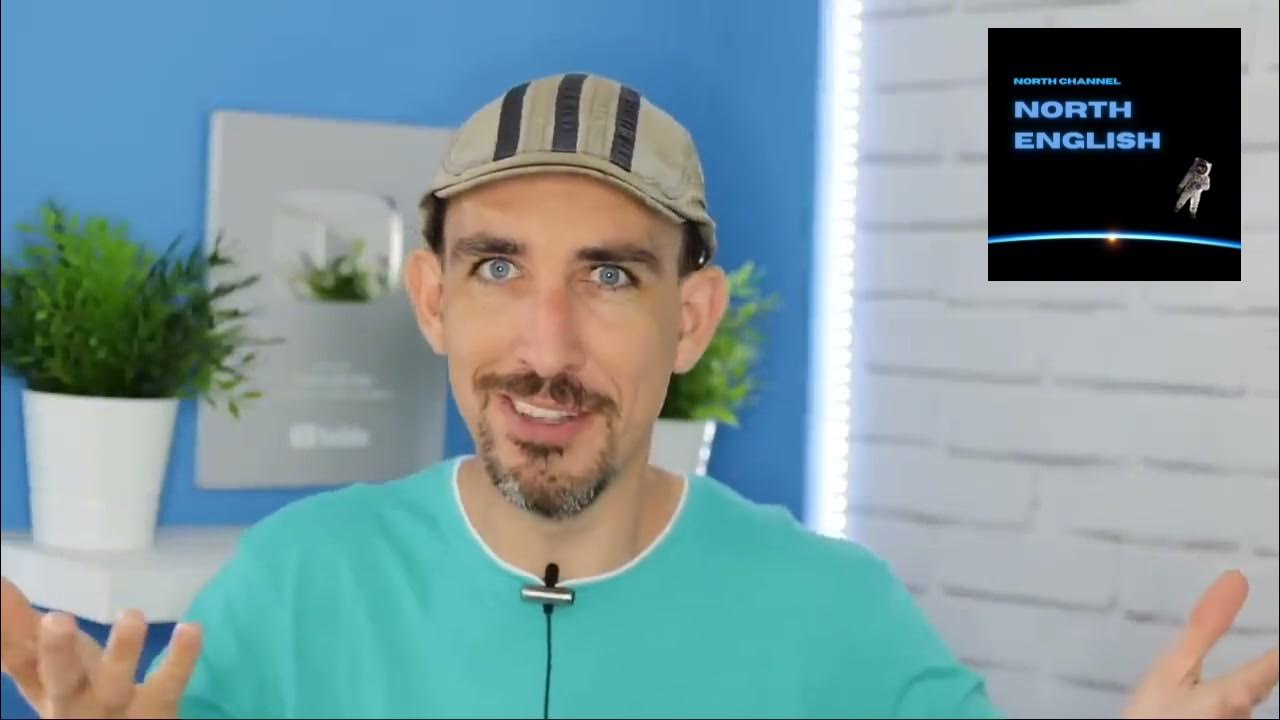Conditionals em Inglês - Zero Conditional : Quando e como usar [ Vídeo 1]
Summary
TLDRIn this educational video, the host introduces a series of four videos dedicated to explaining English conditionals, starting with the zero conditional. The zero conditional is used for situations where a condition and its result are always true, employing the 'if' statement followed by a simple present tense sentence. Examples include 'If you press the button, the computer shuts down' and 'If you drink a lot, you get drunk.' The host emphasizes the zero conditional's use for 100% certain outcomes and offers tips to avoid confusion with other conditionals. The video concludes with a call to action for viewers to engage with the content and a personal anecdote about meeting a fan.
Takeaways
- 🎥 The video is part of a series focusing on explaining English conditionals.
- 📚 The presenter introduces the concept of 'zero conditional', which is the simplest form of conditionals.
- ✅ Zero conditional is used when the condition and its result are always true, expressed as 'if' plus present simple.
- 🍽️ Example given: 'If I eat rotten food, I feel sick.'
- 💡 The presenter advises to use zero conditional for situations where the outcome is a guaranteed fact.
- 📢 The video also mentions that zero conditional can be used for giving instructions or suggestions.
- 📞 Examples for instructions: 'If you have any questions, call me.' or 'If you need further information, call the supervisor.'
- 🔑 Key rule emphasized: 'if' plus present simple structure for zero conditional sentences.
- 👨🏫 The presenter plans to cover first, second, and third conditionals in upcoming videos.
- 🙏 A special thanks is given to a viewer named Fábio for visiting and showing appreciation for the presenter's work.
Q & A
What is the main topic of the video?
-The main topic of the video is the explanation of 'conditionals' in English grammar, specifically focusing on the 'zero conditional'.
What are the four types of conditionals mentioned in the script?
-The four types of conditionals mentioned are zero conditional, first conditional, second conditional, and third conditional.
What is the zero conditional used for according to the video?
-The zero conditional is used when the condition and its result are always true, representing a 100% certainty.
Can you provide an example of the zero conditional from the video?
-Yes, an example given is 'If I eat rotten food, I feel sick.'
What is the structure of the zero conditional according to the video?
-The structure of the zero conditional is 'if' followed by a present simple sentence, and then another present simple sentence.
How does the video suggest using the zero conditional for giving suggestions or instructions?
-The video suggests using the zero conditional for giving suggestions or instructions by stating a condition followed by an action in the present simple tense, such as 'If you have any questions, call me.'
What is the difference between the zero conditional and other conditionals according to the video?
-The zero conditional is different from other conditionals because it is used for situations where the result of the condition is always true, without any exceptions.
What is the advice given in the video to avoid confusion with other conditionals?
-The advice given is to remember that the zero conditional is used for conditions that always result in a true outcome, and to distinguish it from other conditionals by its certainty.
What is the next step in the video series according to the script?
-The next step in the video series is to explain the first conditional.
Who is Fábio mentioned in the video, and why is he thanked?
-Fábio is a person from Aracaju who came to meet the speaker. He is thanked for his appreciation of the speaker's work and for learning from it.
What does the speaker encourage viewers to do if they have questions about the video content?
-The speaker encourages viewers to comment below the video with their questions for further clarification.
Outlines

Этот раздел доступен только подписчикам платных тарифов. Пожалуйста, перейдите на платный тариф для доступа.
Перейти на платный тарифMindmap

Этот раздел доступен только подписчикам платных тарифов. Пожалуйста, перейдите на платный тариф для доступа.
Перейти на платный тарифKeywords

Этот раздел доступен только подписчикам платных тарифов. Пожалуйста, перейдите на платный тариф для доступа.
Перейти на платный тарифHighlights

Этот раздел доступен только подписчикам платных тарифов. Пожалуйста, перейдите на платный тариф для доступа.
Перейти на платный тарифTranscripts

Этот раздел доступен только подписчикам платных тарифов. Пожалуйста, перейдите на платный тариф для доступа.
Перейти на платный тарифПосмотреть больше похожих видео

CONDITIONALS | Learn all the conditionals | English grammar

ALL CONDITIONALS | 0,1,2,3 and MIXED CONDITIONALS - English Grammar | if....

The 4 Conditionals (Stop Confusing Them)

Conditional Sentence Dalam Bahasa Inggris

Belajar If Conditional #english #belajarbahasainggris #ifcondition #fyp #materikelas

APRENDA TODAS AS CONDICIONAIS EM INGLÊS | Do Zero à Fluência
5.0 / 5 (0 votes)
